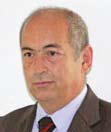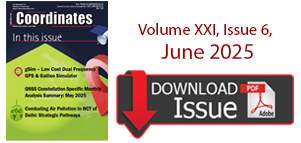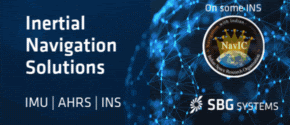|
An opportunity for GNSS collaboration between South East Asia and Europe
|
|
|
The development and deployment of the European Satellite Based Augmentation System EGNOS followed by the development of the Global Navigation Satellite System (GNSS) Galileo, that is currently under deployment, definitely represent the largest technological initiative promoted by the European Union so far. While designing and setting up its own GNSS, Europe has devoted funding and energies not only for the core activities needed to make the new system operational, but also to support research projects and actions targeting at large the GNSS sector, in order to promote its growth and its strengthening. GNSS application have therefore deserved keen attention, awareness and education actions have been funded and cooperation and synergies with different countries and regions have been sought. It is in this framework that a project entitled “South- East Asia centre on European GNSS for international cooperation And Local development” (SEAGAL) has been conceived and funded (Seventh Research Framework Programme – Galileo I Call – Grant Agreement no. 228061).
SEAGAL aims to establish a new link between Europe and South East Asia in the framework of satellite navigation and related applications, from education to technology transfer, from research activities to life-long learning. The main objective of the project is to set up a Collaboration Centre in South East Asia and with South East Asia, on European GNSS technologies. The Centre will be located in the premises of Hanoi University of Technology (HUT) in Vietnam and it will be opened at the end of the project on 1st October 2010. The project foresees also the preparation of a “Plan of activities” for three years after the opening of the Collaboration Centre so that it can start its activities right after the opening. Within the project some ancillary awareness and dissemination activities are foreseen as well, which are mainly constituted by two workshops held in October 2009 in Hanoi and in March 2010 in Bangkok.
Although based in Vietnam and strongly connected to the Vietnamese society, the Collaboration Centre is being designed to develop its activities with a clear South East Asian perspective and for the benefit of all the Countries in the Region thus promoting a strong partnership with Europe on GNSS advanced scientific and technological topics. These can highly contribute to a sustainable improvement of the quality of life providing better, safer, and faster services in almost any field, from the mitigation of disasters to the use of natural resources, from infrastructures in support of mobility and transportation to tourism, power generation and transport, insurances, etc.
The collaboration Centre is expected to promote awareness and technology transfer, research, training, higher education, and support to public bodies in the field of GNSS and related applications. Activities of the Centre should have a strong orientation in support of the productive sector and should promote cooperation with European institutions and industries while acting also as a focal point at research and university level. In this sense the Centre is going to establish a real link in the South East Asia Region with European actors, promoting European GNSS technology. The Centre should become the place where students, companies and policy makers find information, resources and support on GNSS related activities. The Centre will also offer support to European companies and universities operating in the GNSS field to find links and partnerships in South East Asia.
The consortium created to implement the SEAGAL project was obtained putting together selected European and Asian Institutions with long lasting cooperation records among them so as to facilitate the project execution. Since, with a total budget of less than 500K Euros, the size of the project is moderate, the partnership is not large and is composed of: Istituto Superiore Mario Boella (ISMB) (Italy), Politecnico di Torino (Polito) (Italy), Universidad Politecnica de Catalunya (UPC) (Spain), Université De Franche- Comté (UFC) (France), Hanoi University of Technology (HUT) (Vietnam), Asian Institute of Technology (AIT) (Thailand). ISMB acts as coordinator of the project.
The European Partners have solid records in GNSS related activities and have complementary expertise in important sectors of GNSS such as receivers and signal processing, Satellite Based Augmentation Systems (EGNOS etc.), Precise Positioning, combined GNSS-WiFi positioning, Location Based Services, Geo-casting in vehicle to vehicle communication, rapid prototyping and development of applications, etc. European partners have also consistent teaching experience at graduate and PhD level as well as in the organization of specific curricula as the Master on Navigation offered at Politecnico di Torino, which is supported by the UN Office for Outer Space Affairs. Finally, some of the European Partners’ key persons involved in SEAGAL are members of GNSS international committees such as the International Committee on GNSS of UN and the Galileo Signal Task Force. With these qualifications European partners can support the design of the Collaboration Center and of its activities to which they can contribute with their expertise. However cooperation on the European side should not be restricted to the project partners. Links, contacts, and joint activities with other European institutions is welcome and will be sought.
















 (2 votes, average: 2.50 out of 5)
(2 votes, average: 2.50 out of 5)





Leave your response!